Hi folks, welcome back for the fall season of the Daily Evolver podcast!
I start this week with a quick report on an amazing new dog training technique I discovered: I talk to them in plain English. It may be too simple and obvious to be a real “technique” but it has also been shockingly effective.
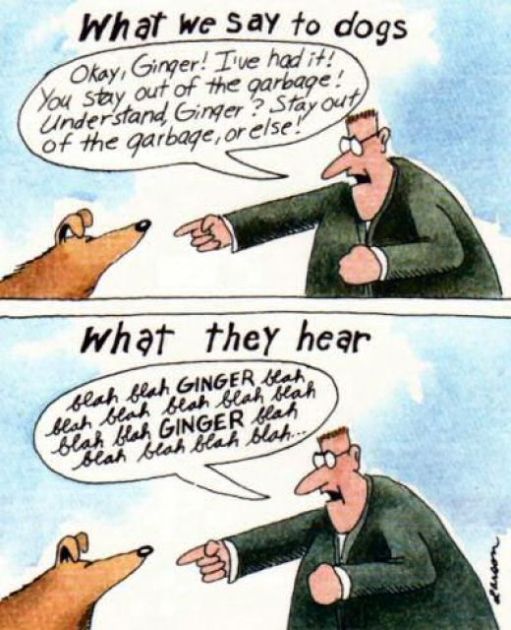 I have a French bulldog nephew, Roman, who stays with me a couple days a week. He’s a very noble boy and always aims to please, except for one problem behavior: he goes bonkers whenever I leave the house. He wants to come along and always causes a big commotion when he sees me get my coat or keys. He runs from room to room and leaps at the back door where I have to kick and shout “back Roman!” as I try to slip out without him charging between my feet. It always leaves me — and I think him, too — feeling bad.
I have a French bulldog nephew, Roman, who stays with me a couple days a week. He’s a very noble boy and always aims to please, except for one problem behavior: he goes bonkers whenever I leave the house. He wants to come along and always causes a big commotion when he sees me get my coat or keys. He runs from room to room and leaps at the back door where I have to kick and shout “back Roman!” as I try to slip out without him charging between my feet. It always leaves me — and I think him, too — feeling bad.
So I’ve been thinking about how to change things. Those of you who check in here regularly know that I think a lot about animals, and often note the emerging research that reveals how humans and animals share deep structures of thought and emotion.
In fact, the way humans — as individuals and cultures — relate to animals provides a handy marker for their level of development, which evolves according to this trajectory:
In the archaic (magenta) altitude of development, before domestication, animals and humans were fused into a larger web of life, though humans with our bigger brains proved to be the lords of the jungle and all other animals developed a healthy fear of us.
In the warrior (red) and traditional (amber) altitudes, animals were valued for being useful. Humans, through animal husbandry (we selected mates), created a whole range of beasts of burden, from an ox pulling a plow to a poor lonely watchdog tied behind a garage. Animal happiness is not at the top of the list of concerns at this stage of the game. An old saying instructs us to not “beat a dead horse”, but at red and amber altitudes there is little compunction about beating a live one.
In the modern age (orange altitude) animals become units of production and are bred, born, grown and harvested in factories producing meat, milk and eggs. While we may pay attention to the health of their bodies — that’s their value, after all — virtually no attention is paid to their interior world of emotion, affiliation, etc. Animals are still largely outside the circle of moral consideration.
At the postmodern (green) stage we get in touch with the interiors of animals. This brings on an upswing of animal rights awareness, pets as part of the family, and vegetarianism.
In the integral worldview (teal and turquoise) we have the realization that every holon, from an atom to an ant to an elephant, has evolved not just in the 3rd person dimension of the physical body, but also in the 1st person dimension of awareness and the 2nd person dimension of love. Humans may have transcended animal consciousness, but we still contain it and can access it in ways that help us relate to creatures of all kinds.
Now of course I’ve been bringing this thinking to the problem of Roman, both consciously and unconsciously, and eventually it just stops making sense for me to continue shouting and scolding. It’s clearly futile and counter-productive. So one night a couple months ago, as I was getting ready to go out and Roman started his crazy behavior, I decided to do something different. I stopped, looked him in the eye…and explained the situation. I said, “Roman, tonight you can’t come with Uncle Jeff, but I need you for another job. I need you to guard the house and your little cousin Stella. You’re a very good watchdog, Roman, and I need you to keep an eye on things. Okay? I’m counting on you.” And he looked up at me, and I swear to God he got it.
From that moment on, the craziness was over. He sat and watched me get ready, and when I went to the back door he followed me and stood, ears up at attention as I walked out. And we haven’t had a problem since.
Of course I don’t claim that Roman understood the words, and I can’t prove that he wasn’t simply responding to my change of attitude and tone. But I think he understood more than I would have previously given him credit for, and somewhere in the melding of language and tone there is a zone of communication that Roman and I have been engaging in ever since.
HOW DEVELOPMENT HAPPENS
What I’ve also learned on hiatus is that my experience with Roman exemplifies how development happens in general. I attended a workshop a couple weeks ago at The Integral Center put on by Terri O’Fallon, the developmental researcher associated with Pacific Integral in Seattle. One of the key principles of development she pointed out is: “you get it, then it gets you”. In other words, we “get” a new insight by thinking about it, talking about it, testing, prodding and mulling it over, until one day we realize that the insight is installed in our minds and bodies, calling forth whole new capacities in us. I think this is what’s happening with my communication with Roman.
Ken Wilber also emphasized this principle in conversations I had with him over the break. As Ken pointed out, a three-year old doesn’t have to work at becoming a five-year-old. Growth is built into the system. The inevitability of development is also true for cultures, though the process is obviously more complex and fraught with dangers and setbacks, as we can see in my next topic…
BILL MAHER AND BEN AFFLECK HIT A LIBERAL FLASH POINT
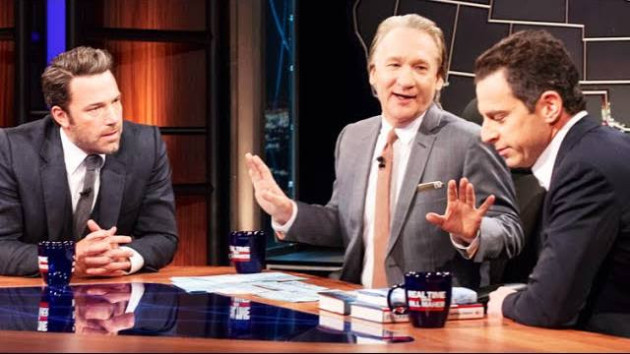
The kerfuffle that took place on Bill Maher’s show Real Time between Maher, Sam Harris and Ben Affleck got a lot of attention this week because it perfectly illuminates a conundrum among liberals: how to deal with Islamic violence without being Islamophobic. Bill Maher has made a career out of being politically incorrect and regularly challenges his fellow liberals to condemn Islam for its retrograde positions regarding freedom of speech, equality for women and acceptance for gays.
The conversation polarized almost immediately between Maher and Harris on one side and Ben Affleck on the other. Harris started off by asserting that “we have been sold this meme of Islamophobia where any criticism of the doctrines of Islam gets conflated with bigotry of Muslims as people.” Affleck, as if proving Harris’s point on cue, responded, “So you’re saying that Islamophobia is not a real thing? That’s gross, it’s racist. It’s like calling someone a shifty Jew.” Harris retorted that we have to be able to criticize bad ideas, “and Islam is the motherlode of bad ideas,” at which point we were off to the races. You can watch it here.
Integral theory provides a far more explanatory view of Islamic extremism, enabling us to see that a culture’s religious doctrines are interpreted at its stage of development.
Every religion is violent in the red and amber altitudes, and every religion is pacified when its adherents become adequately modern. Millions of Muslims are modern in countries like Malaysia and Indonesia, for instance, and millions of Christians are pre-modern in countries such as Eritrea and Ethiopia (where most girls are circumcised). Heck, we even have violent Buddhists marauding through the countryside in Myanmar and Sri Lanka.
Integral teacher and scholar Dustin DiPerna, also inspired by the Maher/Harris/Affleck flap, wrote a terrific essay for Integral Life on how development trumps religion. As he says,
“There is not one version of Islam that is either ‘Good’ or ‘Bad’ but there are at least five versions of Islam, all dependent upon specific levels of interpretation. Each of these levels is not arbitrary. The levels are consistent across traditions and can be correlated with very specific stages of psychological development.
“The point to all of this is that in the discourse between Affleck and Harris it’s not just a case of understanding the difference between extremist and moderates. That binary outlook no longer serves us. Rather, what is needed is the critical comprehension that individuals, with different levels of development, are enacting Islam (and all other religious traditions) according to their own worldviews and levels of development. And even more importantly, we must come to the understanding that there are paths that can be highlighted that can help individuals move along that developmental spectrum from magic, to mythic, to rational, to pluralistic, to integral versions of each tradition. As development unfolds, interpretations of faith move from being more restrictive, ego-centric and ethno-centric in view to orientations that more compassionate, open, and world-centric.”
This of course begs the question as to why so many Muslim countries have not developed further. That’s a big question with lots of answers — oil, geopolitical position of the Middle East, Western domination — but the doctrines of Islam are not the crux of the problem. The Hebrew and Christian Bibles also contain plenty of doctrines that are now seen as violent, misogynistic, homophobic and morally repugnant. Countless holy wars and inquisitions have been carried out in the name of God. I just pray that it doesn’t occur to ISIS to up the ante on their YouTube executions and start burning journalists at the stake, as the Roman Catholic Church did to nearly a hundred thousand witches and heretics in the middle ages.
But all is forgiven as we move into modernity. It’s astonishing really. We just drop the whole jihad project when we realize how much more interesting life is when we engage rather than conquer those evil “others.”
As a florid example of this progress, the same Roman Catholic church that tortured and burned apostates in its red/amber phase just this week issued a report entitled Welcoming Homosexual Persons, which top Vatican watcher John Thavis called “an earthquake” in the Church’s evolution in accepting gays. Welcome to the orange/green church.
All of which points to the sheer spiritual potency of development. The teachings of one’s religion are far less important than the structure of mind in which they operate. It is the evolutionary growth of consciousness, person by person and culture by culture, that is calling forth into the world new capacities of empathy, care and even holiness.
Podcast: Download
Subscribe: Google Podcasts | RSS

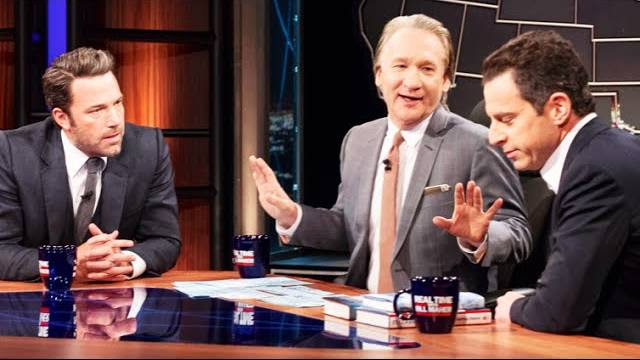
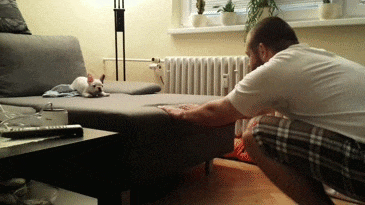
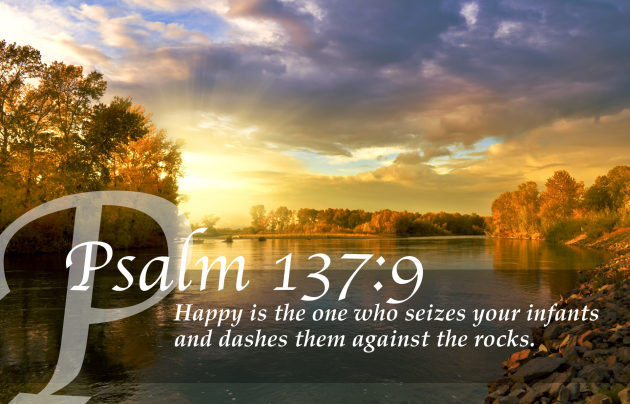


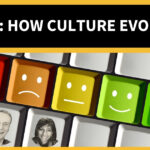


Jeff,
When I discover that you have a new podcast available it truly makes my day. Thank you so much for what you do! So glad you are back and had a fruitful hiatus.
Corey
Golden, CO
You and Integral make my day–suddenly the mayhem of the times becomes easier to understand, and I’m “alone” no longer. Thank you, thank you!
Hi Jeff, What a lovely evening spent with my son listening to this podcast and your interview from July. There was so much I loved hearing and learning about. (We also listened to Sam’s blog on why he doesn’t hate Israel and read Dustin DiPerna’s article on the Harris/Affleck scuffle.) What a night of information absorption! (Ok, I was cooking, eating, and dying my old shoes through some of it!)
I loved your response in your July interview to the question of “what can we do about the news we hear?” Well, after listening yesterday and the day before to Terry’s interviews with Bruce Lipton and Andrew Harvey (okay, I know, I’m being a podcast junkie) I see the great importance of how we think in reaction to the news. Indeed, our collective reactions, as a society, really do affect the “field” and therefore each one of us. The more we give in to fearful and negative thoughts, the more difficult it is to actually create change in the world because the overwhelming belief we’re dealing with is one of negativity. It’s kind of like Sysiphus’ rock. A collective shift in thinking must evolve in order for us to affect the kind of change that Andrew Harvey refers to as sacred activism. Slowly but surely, I have faith we will get there.